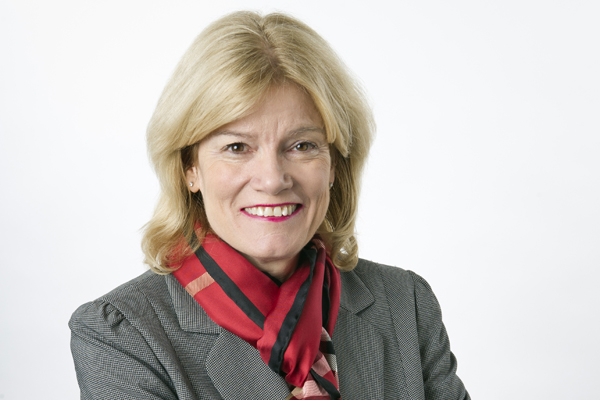3Qs: Expanded health care creates need for empowered professionals

Thursday’s 5-4 ruling by the Supreme Court in favor of the constitutionality of President Obama’s Affordable Care Act will greatly improve access to health care all Americans but creates new challenges for institutions like Northeastern to help address, according to Terry Fulmer, dean of the Bouvé College of Health Sciences. Fulmer, one of the nation’s foremost experts in the field of geriatric care, said health-care providers must be empowered to provide more direct care to their patients, which will prevent more acute cases from emerging.
What is the most important outcome of the Supreme Court’s ruling that the Affordable Care Act is constitutional?
Coverage for health care is the most important outcome because the ACA is about access to quality health care for every American. At Bouvé, we believe this is a basic human right.
Increasing access to health care is also a way to promote cost savings. It has been estimated that for every dollar spent in prevention, you save $10 in care. If you keep people healthy by, for example, controlling blood pressure and weight, there will be lower expenditures for cardiovascular disease management. In Massachusetts, there are now fewer individuals going to emergency rooms with, for example, with acute chest pain — that has to do with people getting preventive care before the development of far more serious conditions. We expect to see that trend continue as access to health care expands nationally.
What are some of the big challenges part and parcel of increased access to health care?
A major challenge will be an adequate workforce for access. The need for additional primary-care providers will come with universal coverage: there will not be enough primary-care physicians to deliver care for the needs of those with new coverage. Nurse practitioners and physician assistants will be an important workforce development area. At Bouvé, our nurse practitioner and our physician assistant programs graduate exceptional students who are dedicated to primary care. There are more than 160,000 NPs and 60,000 PAs in the United States and employment of both groups is expected to increase 30 percent from 2010 to 2020, much faster than the average for all occupations. As more physicians enter specialty areas of medicine, there will be a greater need for generalist primary health-care providers. Other health care professionals — like our pharmacists, physical therapists, and audiologists, for example — will also need to be empowered to improve access to care.
Today, 11 states permit nurse practitioners to practice independently, without physician involvement, while 27 states require NPs to practice in collaboration with an MD. Collaboration definitions vary, but written practice protocols are often required; 10 states require MD supervision of NPs. Massachusetts is among the states that require collaborative agreements — if this restriction can be lifted (as it was in states such as New Hampshire and Maine), there will be more access to primary care. These highly-trained professionals should be able to provide key services, including immunizations, blood pressure monitoring, and prescription modification, which might otherwise require a full visit to a primary care doctor. All of these changes save money and, more importantly, are interventions that can prevent a condition from becoming much more severe down the road.
How are colleges and universities positioned to help train the next generation of health-care providers and leaders?
Careers in health care are a major growth area for colleges and universities. The Bureau of Labor Statistics documents the extraordinary growth anticipated in the health fields. Northeastern has a robust and growing health-professions program; we will continue to provide excellent contemporary health-care education as well as expand programs of research that can help guide the future. The demographics of the aging Baby Boomer generation underscore the need for health-care reform that ensures access and affordability to meet the growing needs of an aging America.
Most importantly, we need to ensure professionals work at the top of their license. With the acceleration of scientific research and knowledge generation, every professional needs to be able to do everything he or she was trained for, without unnecessary regulations limiting care provision. Accrediting bodies and state boards of practice are in place to ensure the quality and safety measures that are needed to safeguard the public continue to be effective.
Greater independence for highly educated professionals, such as our Bouvé graduates, will greatly improve access to affordable, high-quality care. All of us are ready to step up.





